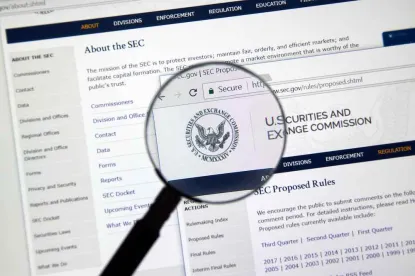Public companies will be required to disclose climate risks and greenhouse gas emissions under President-elect Biden’s administration. The Securities and Exchange Commission (SEC) will institute rulemaking and guidance on the federal monitoring of environmental, social and governance (ESG) issues. The Biden administration’s decision to require climate report disclosures follows complaints from investor advocacy groups about inconsistent disclosure practices due to voluntary reporting frameworks.
Under the outgoing Trump administration, SEC Chairman Jay Clayton relied on a “principles-based approach” to climate disclosure. Through this approach, the SEC loosened certain requirements for companies under Regulation S-K and relaxed conflict-of-interest rules for independent auditors under Regulation S-X. Requirements were eased this past August and October in a pair of highly controversial split decisions.
Commissioner Allen Herren Lee, one of two Democrats who would join Biden’s three-member majority, strongly opposed the SEC’s decision to make changes to regulation S-K. Lee indicated that the SEC should instead be demanding more ESG disclosures from companies. In her dissent, she wrote, “Shareholders are beginning to accomplish on climate change what they have accomplished on numerous other significant issues crucial to good governance and long-term value—focus management attention and drive valuable and needed change. The Commission should be encouraging this type of engagement, not stifling it.”
In closing, Commissioner Lee stated, “In the end, these amendments will restrict shareholders’ ability to oversee and engage with management of the companies they own. They do not properly value shareholder proposals or shareholder rights. And they will restrain shareholder efforts on issue that are of pressing importance to them and the broader economy.”
In recent years, Congressional Democrats have promoted legislation that would require companies to disclose ESG-related risks. In 2019, Senator Elizabeth Warren submitted S.2075, the “Climate Risk Disclosure Act of 2019,” which directs the SEC to “require an issuer of securities to annually disclose information regarding climate-change related risks posed to the issuer, including an in issuer’s strategies and mitigate these risks. Among other things, issuers must report their direct and indirect greenhouse-gas emissions, disclose their fossil-fuel related assets, and establish standards regarding the social cost of carbon.”
Representative Juan Vargas also introduced a bill which would require public companies to disclose ESG metrics. H.R.4329, or the, “ESG Disclosure Simplification Act of 2019,” would establish a Sustainable Finance Advisory Committee within the SEC that would “submit to the Commission recommendations about what ESG metrics the Commission should require issuers to disclose.”
Both bills are unlikely to be recommended out of committee under the current administration, but the priority change is likely to happen once president-elect Biden assumes office. This legislation, in combination with Commissioner Lee’s statements in support of mandatory climate disclosure, is part of a wider national call for increased regulations. In its latest Financial Stability Report, the U.S. Federal Reserve released a statement in support of climate risk disclosure. It anticipates that banks “have systems in place that appropriately identify, measure, control and monitor all of their material risks, which for many banks are likely to extend to climate risks.”
Should President-elect Biden successfully institute a regulatory framework for corporate ESG disclosures, investment funds will be well-positioned to deliver trillions of dollars of investment capital into the U.S. economy to meet climate goals. This past December, members of the Investment Company Institute, which manages more than $34 trillion in assets, formally called upon US public companies to provide ESG disclosure consistent with standards set by the Task Force on Climate-Related Financial Disclosure (TCFD) and Sustainability Accounting Standards Board (SASB). These recent actions suggest that mandatory ESG and climate risk disclosure is likely to be met with widespread investor support.




 />i
/>i

